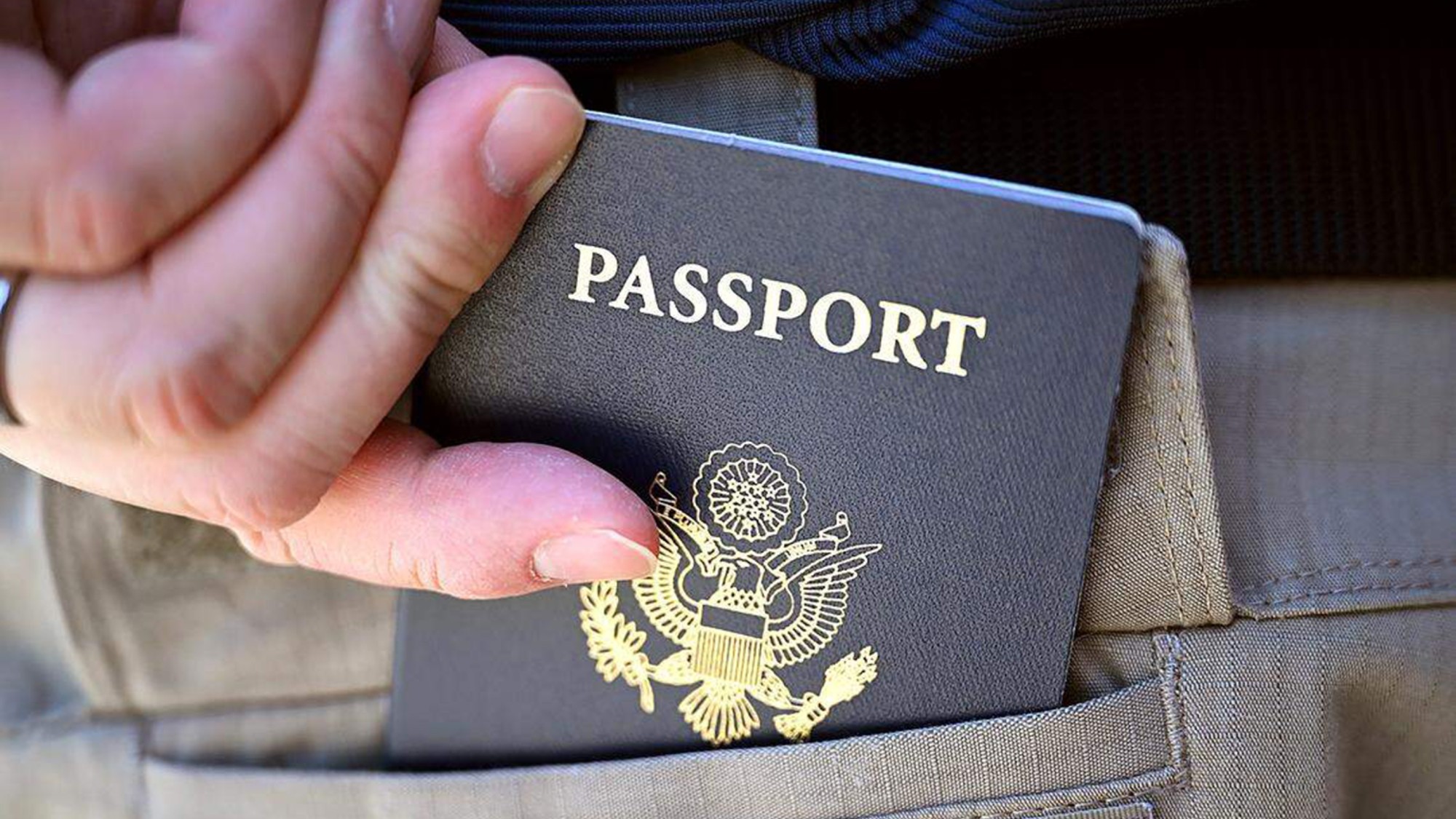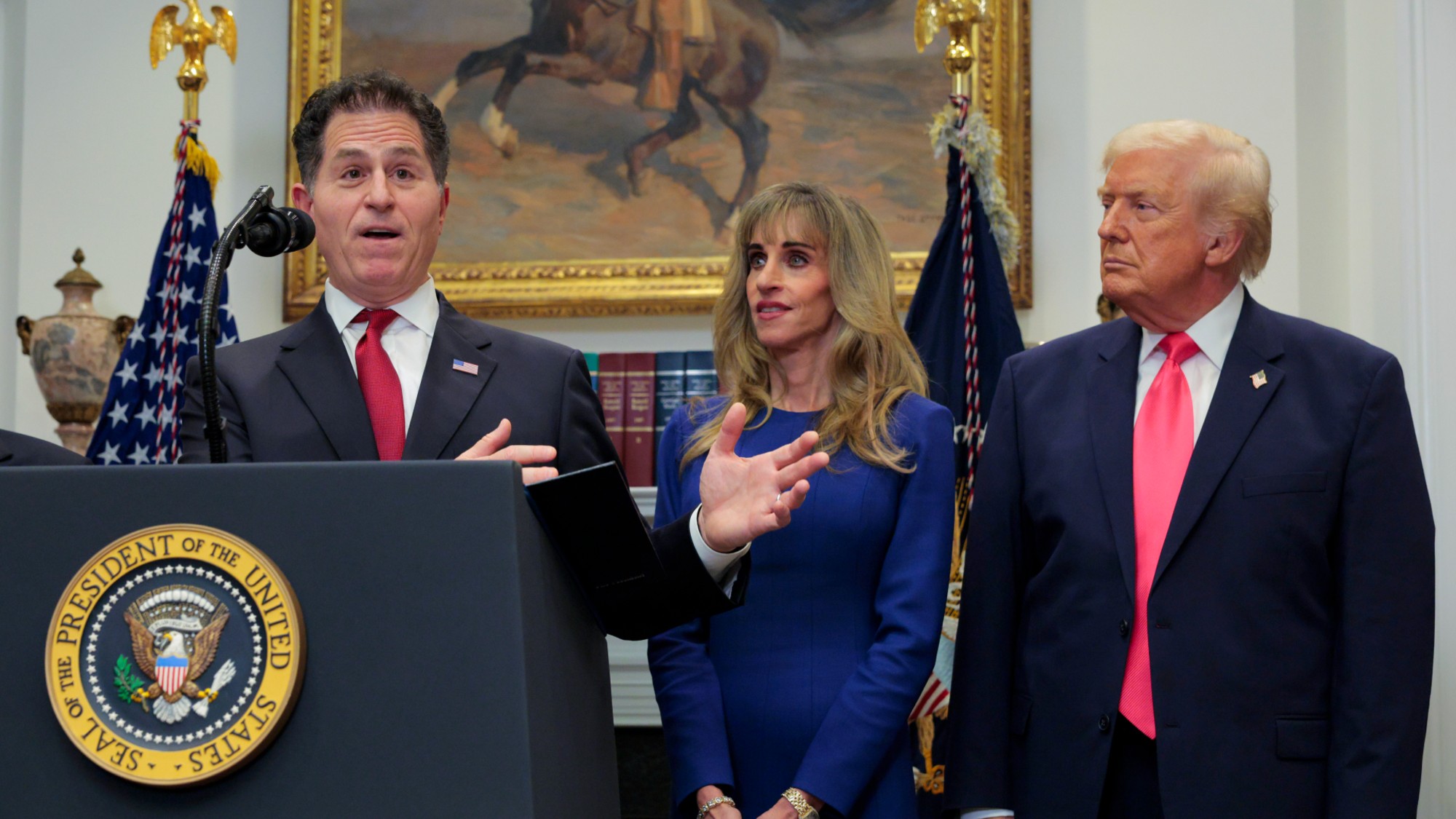Syria's Kurdish community at the center of a post-Assad game of geopolitical tug-of-war
The fall of longtime strongman Bashar al-Assad has created a power vacuum that threatens some of the United States' staunchest allies in the region


A free daily email with the biggest news stories of the day – and the best features from TheWeek.com
You are now subscribed
Your newsletter sign-up was successful
Last month's sudden and tumultuous overthrow of Syria's longtime dictator Bashar al-Assad marked a moment of seismic upheaval in a region already straining under the weight of spiraling wars and geopolitical strife. Years in the making, Assad's ousting now leaves Syria in a state of fragile uncertainty, as the various insurgent factions who helped bring Syria to this point vie for control moving forward, often with the backing of international partners keen to capitalize on a regional power vacuum.
In the middle of these intersecting vectors of influence and interest lies the Syrian Democratic Forces, an American-backed military group of Kurdish-led fighters that controls approximately one-third of the country after helping the U.S. fight ISIS in the region. The SDF's accumulated power has placed it — and Syria's ethnic minority Kurdish community at large — at the center of a fight for the country's future. The regional powerhouse Turkey is threatening to eliminate the military group as part of a broader anti-Kurdish enterprise, and the U.S. is pondering if and how to best support a proven ally.
'Uncertain future'
For more than a decade, the Kurdish SDF was "America's most reliable partner in Syria," The New York Times said, not only recapturing territory formerly held by ISIS but detaining "around 9,000 of its fighters." Turkey, though, views the group as "allied with the separatist Kurdistan Workers' Party which has fought the Turkish state for decades." With Turkey maneuvering to "make itself a key player as its southern neighbor stabilizes," that country has increasingly threatened direct military action against Syria's Kurdish forces unless they "accept Ankara's conditions for a 'bloodless' transition," Al Jazeera said.
The Week
Escape your echo chamber. Get the facts behind the news, plus analysis from multiple perspectives.

Sign up for The Week's Free Newsletters
From our morning news briefing to a weekly Good News Newsletter, get the best of The Week delivered directly to your inbox.
From our morning news briefing to a weekly Good News Newsletter, get the best of The Week delivered directly to your inbox.
Syria's new post-Assad leadership, worried about the country's "uncertain future," last month "took steps to dissolve the different rebel factions and unite them under the new Syrian army," National Public Radio said. The SDF did not participate in that unification process, claiming that while it "wasn't opposed to joining the Syrian military in principle," any such action "required negotiations with Damascus." Crucially, the Syrian National Army — the group most closely aligned with Turkey, "is interacting with the new Syrian leadership in Damascus to integrate into a unified army," said Foundation for the Defense of Democracies research analyst Ahmad Sharawi. The question then is whether or not any future unified army "will participate in an offensive against northeastern Syria and SDF-controlled areas."
Securing US 'interests and reputation'
There are 2,000 American troops in the country, and "most U.S. objectives in Syria have been accomplished." Those goals include mitigating the threat from ISIS, staunching the use of Syria as a conduit for Iranian influence in Lebanon and deposing the Assad regime, said Steven Simon and Joshua Landis at Foreign Affairs. "Only the fate of Syrian Kurds remains unresolved."
While the bulk of Syria is "awash with armed groups" in the wake of Assad's ouster, the northeast region under SDF control has been an "island of stability amid the chaos" thanks in no small part to the Kurds who have "sacrificed greatly to support the U.S.-led war on terror," said Georgetown University security studies professor David Phillips at The Hill. As "allies and friends with whom we share strategic interests and values," America's "interests and reputation" demand the United States support them against any potential Turkish aggression. A "best-case scenario for the Kurds," said The New York Times, would be American support that enables "leverage with the new government in Damascus to pursue a fully autonomous state." A worst case scenario for the Kurds: "Inflamed conflict with Turkish-backed fighters, be forced to cede control of at least some of their oil-rich territory" and "if President-elect Donald J. Trump decides to withdraw U.S. troops," the SFD could "lose vital help on the ground."
A free daily email with the biggest news stories of the day – and the best features from TheWeek.com
Rafi Schwartz has worked as a politics writer at The Week since 2022, where he covers elections, Congress and the White House. He was previously a contributing writer with Mic focusing largely on politics, a senior writer with Splinter News, a staff writer for Fusion's news lab, and the managing editor of Heeb Magazine, a Jewish life and culture publication. Rafi's work has appeared in Rolling Stone, GOOD and The Forward, among others.
-
 How the FCC’s ‘equal time’ rule works
How the FCC’s ‘equal time’ rule worksIn the Spotlight The law is at the heart of the Colbert-CBS conflict
-
 What is the endgame in the DHS shutdown?
What is the endgame in the DHS shutdown?Today’s Big Question Democrats want to rein in ICE’s immigration crackdown
-
 ‘Poor time management isn’t just an inconvenience’
‘Poor time management isn’t just an inconvenience’Instant Opinion Opinion, comment and editorials of the day
-
 How ‘Manchesterism’ could change the UK
How ‘Manchesterism’ could change the UKThe Explainer The idea involves shifting a centralized government to more local powers
-
 ‘Dark woke’: what it means and how it might help Democrats
‘Dark woke’: what it means and how it might help DemocratsThe Explainer Some Democrats are embracing crasser rhetoric, respectability be damned
-
 San Francisco tackles affordability problems with free child care
San Francisco tackles affordability problems with free child careThe Explainer The free child care will be offered to thousands of families in the city
-
 The Mint’s 250th anniversary coins face a whitewashing controversy
The Mint’s 250th anniversary coins face a whitewashing controversyThe Explainer The designs omitted several notable moments for civil rights and women’s rights
-
 US citizens are carrying passports amid ICE fears
US citizens are carrying passports amid ICE fearsThe Explainer ‘You do what you have to do to avoid problems,’ one person told The Guardian
-
 Inside Minnesota’s extensive fraud schemes
Inside Minnesota’s extensive fraud schemesThe Explainer The fraud allegedly goes back to the Covid-19 pandemic
-
 Trump wants to build out AI with a new ‘Tech Force’
Trump wants to build out AI with a new ‘Tech Force’The Explainer The administration is looking to add roughly 1,000 jobs
-
 ‘These accounts clearly are designed as a capitalist alternative’
‘These accounts clearly are designed as a capitalist alternative’Instant Opinion Opinion, comment and editorials of the day
